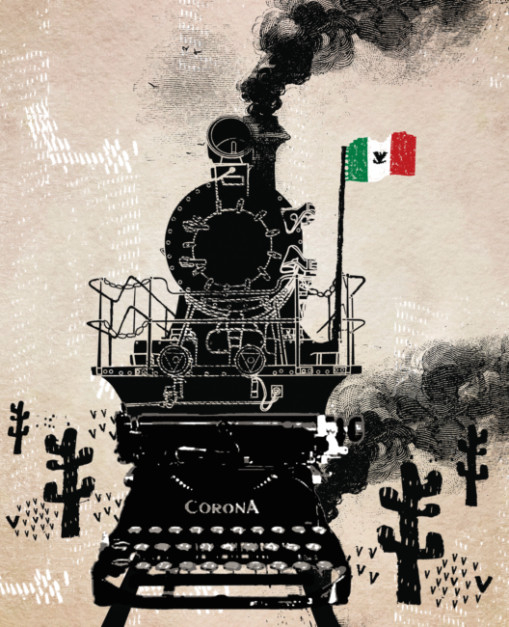
The American military misadventure in Vietnam was the background to the book that made the reputation of Robert Olen Butler: the 1993 Pulitzer prize-winning short-story collection, “A Good Scent from a Strange Mountain”.
An earlier foreign folly, President Woodrow Wilson’s 1914 intervention in the Mexican civil war, is the subject of “The Hot Country”. But the author may also have more recent presidents in mind, as the central character, Chicago Post-Express war correspondent Kit Cobb, rails against “invasions” and the risks of intervening in internally divided nations.
This book begins a trilogy that marks Olen Butler’s first incursion into the territory of crime and spy fiction, a sort of writing generally spurned by the types who win Pulitzer prizes, and so represents an intriguing artistic diversion.
His journalist-protagonist’s full name is Christopher Marlowe Cobb, the first two elements honouring the favourite playwright of his mother, a histrionic and libidinous American actor who had a free hand in her son’s naming because his father was absent — and never, despite repeated pleading, identified.
He prefers to be known as “Kitt Cobb” because, in a joke typical of Olen Butler’s playful tone, he can’t stand pretentious authors with three names. Cobb approves, then, of Jack London, the author-reporter who is one of the actual figures bringing a whiff of historical realism to the book.
Unlike many fictional hacks, Cobb is completely convincing as a working journalist, his narration letting the reader in on such tricks of the trade as playing dumb in order to trick a source into spilling more of the story.
The novel depicts aspects of reporting that have been consigned to history — sending copy by cable, lugging around a Corona Portable No 3 typewriter — and also some that survive, such as semi-fictional reporting and war correspondents submitting their copy to the military censor. Accused of including unpatriotic facts about America’s progress in Mexico, Cobb resonantly replies: “I’m such a patriot I believe the press has to be free.”
Possibly less exemplary for contemporary journalists is Cobb’s near-alcoholism and habit of brief desperate intimacy with the maid who launders his clothes in the cheap hotel.
A journalist in a book set in Mexico is always going to stumble into the footprints of Graham Greene — whose “The Power and the Glory” portrayed a later stage of Mexican tensions — and Olen Butler seems to acknowledge Greene’s shadowy presence, especially in a scene in which Cobb holds up a coin in front of a young boy he is trying to bribe, and the child, confusing the money with the oval wafer at holy communion, instinctively makes the sign of the cross.
Greene also established the concept of a writer dividing his work between serious novels and “entertainments”, a term that feels right for the intent and spirit of this projected trilogy.
For all its deliberate parallels with contemporary politics — Mexico’s oil is one of the prizes being fought for — “The Hot Country” draws on many elements of the traditional adventure yarn, including disguises, fist fights and foot races, double agents and alluring young women who may be honey traps or spies.
This romp is told, though, in prose that has been written with serious attention. Period slang convincingly ages the dialogue, while Cobb’s first-person narration is impressively precise about the mix of tongues being spoken in a city occupied by soldiers, reporters and spies, with languages sometimes flipping in the same conversation.
Recruiting a street-boy, Diego, as his assistant, Cobb approaches him in American-accented Spanish, with the boy replying in Spanish-inflected English: “You bet.” Posing as a German national, the journalist, in conversation with a Mexican cop, speaks Spanish, but from the back of his throat to sound more convincingly guttural.
The smooth fabric of the narrative is occasionally ripped by an intrusive lump of research — such as the train routes through revolutionary Mexico — but the tremendous set pieces include an American general briefing correspondents while interrupted by a parrot’s impersonations of a previous US ground commander.
This English paperback original includes as an inducement two chapters from the middle book in the trilogy, “The Star of Istanbul”, which “No Exit” will publish here next June. And, combining an elegy to a dead age of journalism with a critique of a surviving American desire to police the world, this first report makes you want to read on into the war correspondent’s second edition.
Mark Lawson’s “The Deaths” is published by Picador.
Guardian News & Media Ltd









